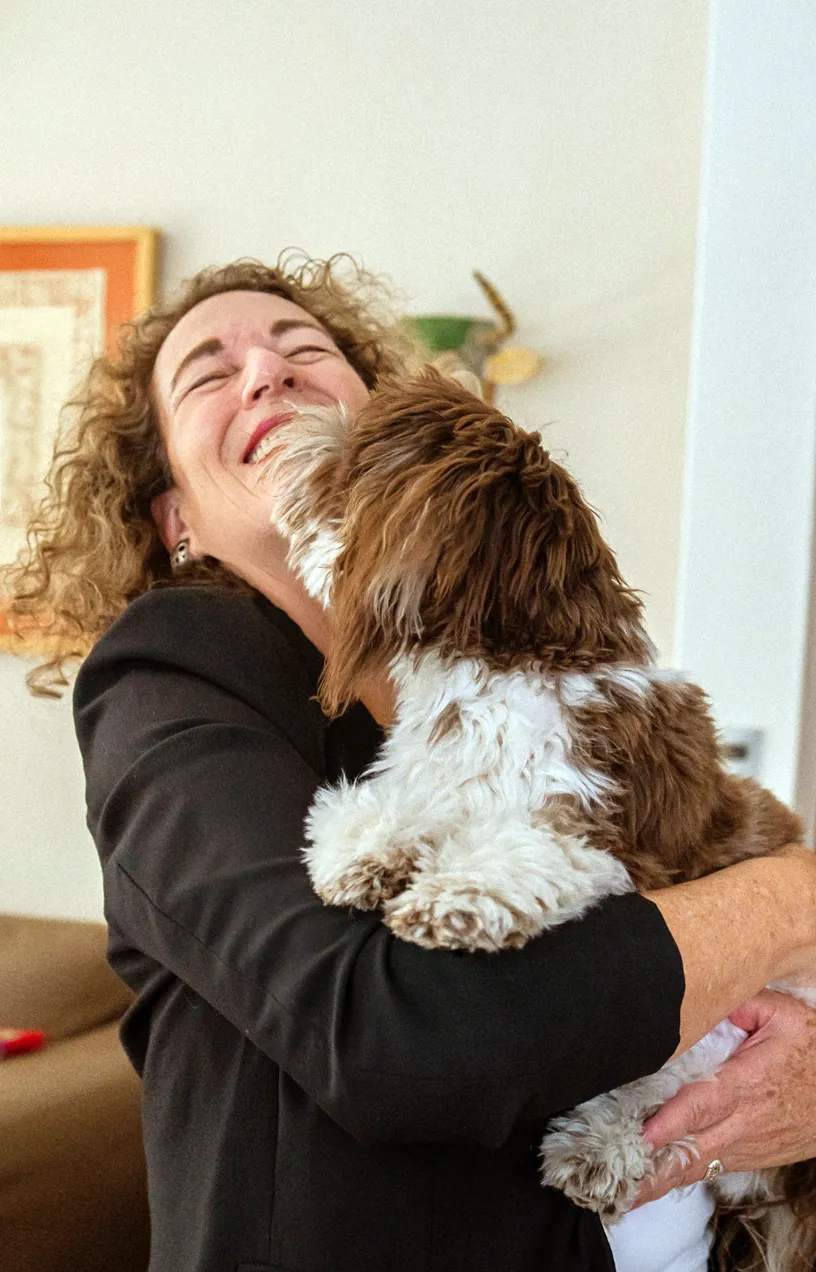How I Discovered Dogs’ Healing Power
My dog, Bodhi, became a healer in my clinical practice by nurturing my clients who were victims of childhood violence. Bodhi had his own bed, on which he stayed when not actively engaged with a client; yet whenever a client lay down on the treatment table, he would move to lie underneath it. I soon noticed that the rhythm of clients’ respirations often became entrained to his (or his to the client’s), leading to relaxation in both their rates and depth of respiration. This was first apparent to me when during the course of the hour, several sighs would occur in both Bodhi and my client simultaneously.
Dogs as Healers Across Cultures
There is a long cross-cultural history of dogs as healers. Much has been said about the loyalty, affection, intelligence, optimism, and unconditional love of dogs. For the Sumerian goddess Gula, the “Great Physician,” and of the Babylonian and Chaldean god of healing Marduk, the dog was the sacred emblem of healing. In ancient Greece, dogs were “emissaries of the gods” (Serpell, 1986), and licked people while they slept as part of the healing ritual. Aesculapius, the Greek god of healing, was guarded by a dog as a child and is pictured with a dog by his side.
The dog also represents transition. Quetzalcoatl, the Nahuatl deity, was accompanied by a dog (who was his twin) on descent to the underworld, and the dog also travels with Hekate, midwife and goddess of the gates in the underworld. Thus dogs pass between light and dark, death and life.
In the late 18th century in England, animals were used at a country retreat for the mentally ill. The first recorded use of animals for therapy in the United States was during World War II, with veterans recovering from PTSD at the Pawling Army Air Corps Convalescent Hospital in New York. In their role as modern-day healers, dogs continue to serve: they lick the wounds and to guide the traumatized individual back from the underworld of despair and detachment.
Dog Definitions at a Glance
Use this at-a-glance list to learn more about how dogs working in integrative medicine are differentiated by the roles they play in helping and healing.
Therapy Dogs accompany their owners to volunteer in a variety of settings, to provide comfort, affection, and support. Therapy dogs must be…
- 1+ years of age
- Well socialized
- Trained by self or with a trainer
- Able to pass the Canine Good Citizen test for obedience (other tests may potentially be required)
- Certified and registered with a reputable national organization
Emotional Support Dogs can be broadly applied. They provide comfort to a person to help relieve symptoms or effects of a DSM-5 defined mental illness. Emotional support dogs must be…
- Well-behaved
- Verified by a letter from a mental health practitioner/psychiatrist for access to housing
Psychiatric Assistance Dogs are specially trained to perform specific tasks for a person who has a psychiatric disorder. Psychiatric service dogs must…
- Pass the General Public Access Test
- Receive 1-2 years of specialized training
- Show training to perform specific tasks in line with handler’s needs
Service Dogs are specially trained to perform specific tasks for a person who has a disability. Service animals must…
- Be individually trained to do work or perform tasks for a person with a disability
- Have great socialization and public skills
- Have written documentation from healthcare provider about need for a service animal
Companion Dogs are the everyday animals in our lives who provide us with company, amusement, love, and happiness. There are no requirements for companion dogs, just lots of love!
You can continue to expand your knowledge about the role of dogs in healing and integrative medicine by reading one of my books or enrolling in my new trauma certification course.
- The Soul of Basil - March 12, 2024
- A Comprehensive Guide to Natural Hypothyroidism Treatment - November 17, 2023
- Flexing Your Self-Care Muscle (and Your Client’s Too!) For Success - September 4, 2023

Are You Ready to Advance Your Career?
If you want to advance your career in integrative medicine, explore my courses and certifications.












